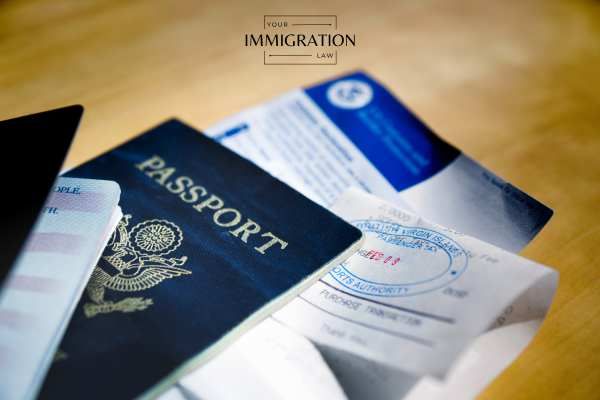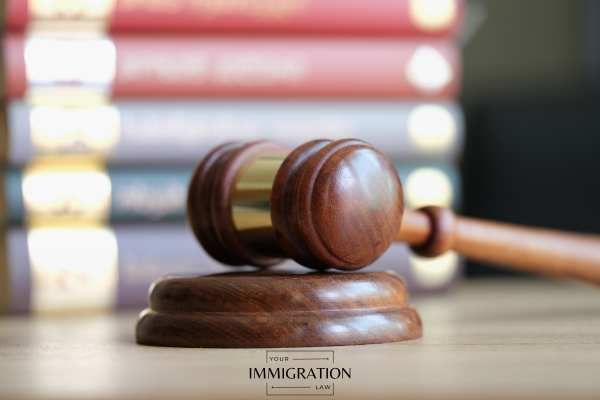Family visa applications are a crucial step for individuals seeking to reunite with loved ones in the United States. However, the process can be challenging, and there are several reasons why these applications might be denied. Understanding the common pitfalls can help applicants avoid delays or refusals. Whether due to incomplete paperwork, incorrect information, or failure to meet specific eligibility criteria, it is essential to be fully prepared when applying for a family visa.
If you are facing challenges with your family visa application, consulting an experienced family immigration lawyer can be invaluable. They can guide you through the process, helping to address potential issues before they result in a denial. Reach out to our team today at (313) 631-8080 to discuss your case and increase your chances of a successful application.
Common Reasons for Family Visa Denials
Securing a family visa is a critical step for many individuals seeking to reunite with loved ones in the U.S. However, there are several common issues that can lead to a denial. Understanding these potential pitfalls can help applicants navigate the process more effectively.
Incomplete or Incorrect Documentation
Proper documentation is essential for a successful visa application. Missing required documents, such as marriage or birth certificates, can cause delays or outright denials. Similarly, errors on forms—like incorrect names, dates, or incomplete sections—can result in rejection. Attention to detail and thoroughness in completing applications are crucial.
Insufficient Proof of Relationship
Visa applicants must provide compelling evidence of their relationship to the sponsor. Without clear documentation, such as photos, communication records, or affidavits, immigration officials may question the legitimacy of the relationship. This lack of credible proof can lead to suspicions of fraud and ultimately to a denial.

Financial Ineligibility
Sponsors are required to demonstrate the financial ability to support the visa applicant. Failing to meet the minimum income requirements or submitting an incomplete affidavit of support are common reasons for denials. This document must clearly show the sponsor's capacity to prevent the applicant from becoming a public charge.
Criminal or Immigration Violations
A history of overstaying a visa, entering the U.S. unlawfully, or engaging in other immigration violations can impact eligibility. Additionally, certain criminal convictions—whether for the applicant or the sponsor—may disqualify individuals from receiving a family visa.
Health-Related Issues
Applicants must pass a required medical exam and meet vaccination requirements. Failing to address medical conditions or submit complete medical documentation can result in being deemed medically inadmissible.
Ineligibility Under Immigration Law
Some applicants may face legal restrictions, such as ineligibility due to prior visa fraud, misrepresentation, or other violations of immigration law. These issues often require extensive legal intervention to resolve.
Failure to Attend Required Interviews
Missing scheduled interviews with immigration officials can jeopardize the entire application process. Attendance is mandatory, as these meetings are used to verify information and assess eligibility.
Addressing these common issues proactively and seeking professional assistance when needed can increase the chances of a successful visa application.
How to Avoid Family Visa Denials
Navigating the family visa process requires careful attention to detail. While denials can occur for various reasons, there are proactive steps applicants can take to improve their chances of success.
Double-Check Documentation
Thoroughly reviewing all forms and evidence is crucial to avoid errors or omissions. Check that every required document is included and that all information is accurate, from names and dates to signatures. A small mistake can lead to delays or outright denials, so take the time to double-check everything before submission.
Provide Strong Relationship Evidence
Submitting comprehensive and diverse evidence of your relationship can help build a compelling case. This may include photos, written communications, financial records, affidavits from friends or family, and official documents like marriage or birth certificates. Using multiple forms of proof reduces the likelihood of suspicions about the legitimacy of your relationship.
Seek Legal Guidance
An experienced US immigration attorney can be an invaluable resource during the application process. They can help identify potential issues, ensure that all documents meet the required standards, and advise on any legal concerns. Working with a professional can significantly reduce the risk of errors and strengthen your application.
Can I Appeal a Family Visa Denial?
Yes, you can appeal a family visa denial, but the process depends on the reason for the denial and the type of visa. After receiving a denial notice, it’s crucial to carefully review the explanation provided by the immigration officer. This notice typically outlines whether the denial can be appealed or if you need to file a new application.
If the denial is appealable, you may have the option to file an appeal with the Board of Immigration Appeals (BIA) or another designated body. Appeals usually require a legal basis, such as proving an error in the initial decision or providing new evidence. Deadlines for filing appeals are strict, often requiring action within 30 days of the denial.

In some cases, a Motion to Reopen or Reconsider might be more appropriate. A Motion to Reopen introduces new evidence that wasn’t previously available, while a Motion to Reconsider argues that the original decision was made based on incorrect application of the law.
It’s highly recommended to consult with an immigration attorney before proceeding. An attorney can assess the specifics of your case, determine the best course of action, and help prepare a strong appeal or motion.
How Long Does It Take to Resolve a Family Visa Denial?
The time required to resolve a family visa denial depends on the reasons for the denial and the steps needed to address it. Generally, the process can take weeks to several months, depending on factors such as documentation requirements, administrative reviews, or legal proceedings. Steps in resolving a denial include:
- Reviewing the Denial Letter: The denial letter typically outlines the specific reasons for the decision. Understanding these reasons is critical for determining the next steps, such as gathering missing documents or addressing legal issues.
- Filing an Appeal or Reapplying: If you believe the denial was made in error, you may file an appeal. This process can take several months, depending on the backlog at the appeals office. If the denial was due to incomplete or incorrect documentation, reapplying with the correct materials may be faster. This process could take a few weeks to several months, depending on the type of visa and embassy workload.
- Administrative Processing: In some cases, visa applications are sent for administrative processing, which can add several weeks or months to the timeline. This step often occurs when additional background checks are required.
- Legal Challenges: If legal issues, such as prior immigration violations, are involved, resolving the denial might require filing motions or seeking waivers. These actions can take several months or longer to resolve.
The time it takes to resolve a family visa denial depends on various factors, including the reason for the denial and the complexity of your case:
- Complexity of the Case: More complex cases involving criminal history or fraud allegations take longer to resolve.
- Backlogs: Delays at embassies, appeals offices, or U.S. Citizenship and Immigration Services (USCIS) can significantly extend the timeline.
- Applicant’s Actions: The speed at which you address the denial, such as submitting new documentation or filing appeals, also impacts the resolution time.
It’s crucial to act promptly and seek legal advice if you are unsure how to proceed. An immigration attorney can help you navigate the process efficiently and avoid further delays.
Can I Reapply for a Family Visa After a Denial?
Yes, you can reapply after a visa denial, but the process depends on the type of visa and the reason for the denial. If your visa was denied due to incomplete or incorrect documentation, addressing these issues and submitting a new application can improve your chances. Similarly, if the denial was based on missing evidence, providing the required documentation in a subsequent application may help.
However, if the denial was due to ineligibility under immigration laws, such as a criminal record or prior immigration violations, you may need to take additional steps, such as applying for a waiver of inadmissibility, before reapplying. It is important to review the specific reasons for your denial, which will be outlined in the denial notice or interview summary.
Consulting with a family visa attorney can be helpful in evaluating your options and build a stronger application. An attorney can provide guidance tailored to your circumstances, increasing the likelihood of approval in your reapplication.
Ensure a Successful Family Visa Application with Legal Help
If your family visa application has been denied, don't lose hope. Understanding the common reasons behind denials and taking proactive steps can significantly improve your chances of success. To ensure your application meets all the necessary requirements and to navigate the process smoothly, it's crucial to seek legal advice. Contact our experienced immigration attorneys today to discuss your case and get the guidance you need to move forward with confidence.